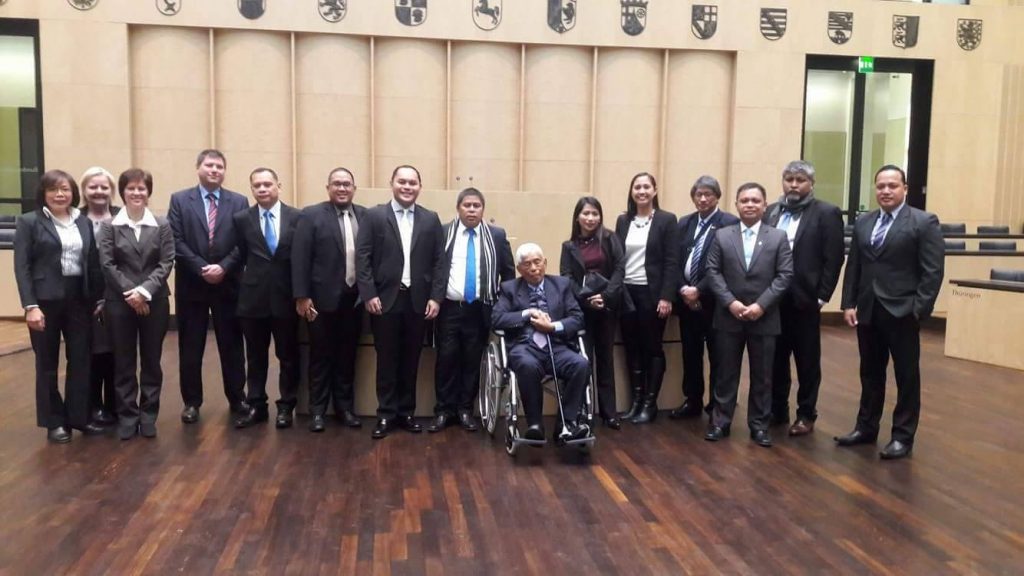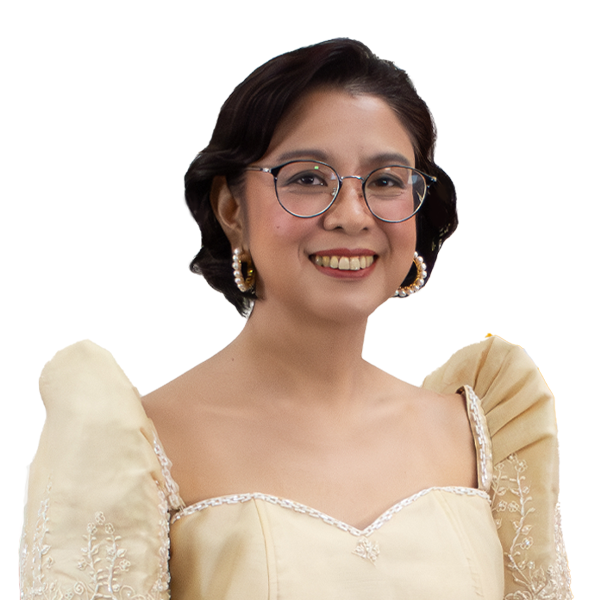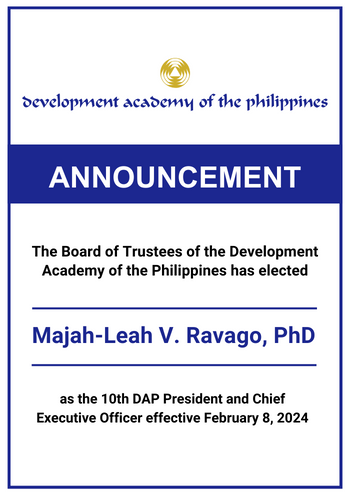
Development Academy of the Philippines President Antonio Kalaw Jr. led a group of DAP technical personnel who recently traveled to Germany to meet with members of the federal government and familiarize themselves with federalism in view of the move for the Philippines to shift to the federal form of government.
The trip is also part of ongoing efforts by the DAP to explore partnership agreements with German Public Administration institutions in line with its vision to be an internationally recognized institution.
Kalaw and his group met with officials of the German Bundesrat, the German government body representing the 16 German federal states, and the Bundestag, the government’s constitutional and legislative body at the federal level, and were assisted during the briefings conducted for them by both bodies.
Forum on federalism
The meetings, which were arranged with the help of Philippine Ambassador to Germany Melita Sta. Maria-Thomeczek, a former DAPper herself, served as a forum for a briefing and discussions on federalism. The Philippine Embassy’s Second Secretary and Consul Rona Beth Goce also joined and assisted Kalaw’s team during the official visits.
The group was joined in its meetings at the Bundesrat and Bundestag by a separate delegation headed by former Senator Aquilino “Nene” Pimentel Jr., one of the prime proponents of federalism in the Philippines. Pimentel’s group included Atty. Rommel Alonto of the Department of Justice; Clarisse Aquino, legislative staff officer of Senate President Aquilino “Koko” Pimentel III; Caroline Lee, program officer of the Hans Seidel Foundation of the Philippines; Quezon Governor David Suarez; and Dr. Manuel Jaudian of the Phinma Educational Network.
Bundesrat overview
Dr. Michael Wisser, head of the Parliamentary Directorate-General and concurrent head of the Presidium Office, Protocol and Events of the German Bundesrat, gave an overview of the role of the Bundesrat in the German government, its history and the extent of its powers. Valentin Gescher of the German Federal Foreign Office assisted Dr. Wisser.
Kalaw and his group then attended another briefing the following day at the German Bundestag, the legislative body composed of 630 representatives elected from 299 constituencies. It is the Bundestag that elects the German Chancellor and also “exercises oversight of the executive branch on issues of both substantive policy and routine administration.”
Bundestag’s roles
MDg Frank Sobolewski, Bundestag Head of Parliamentary Services, talked about the roles of the Bundestag during the briefing for the DAP delegation and Pimentel’s team, explaining its institutional relationship with the Bundesrat as well as the intricacies of the German political system.
The German sojourn was actually part of the DAP’s initiative, in its role as government think tank, to learn more about federalism based on the German experience as Germany is one of the primary models in the world of the federal system of government. The briefings at both legislative bodies served as a rich source of additional information on the federal system, and are expected to help the DAP contribute to the discussions on the shift of the Philippines to the federal form of government.




